Player. Coach. Jack. King. Alan Curtis at 70
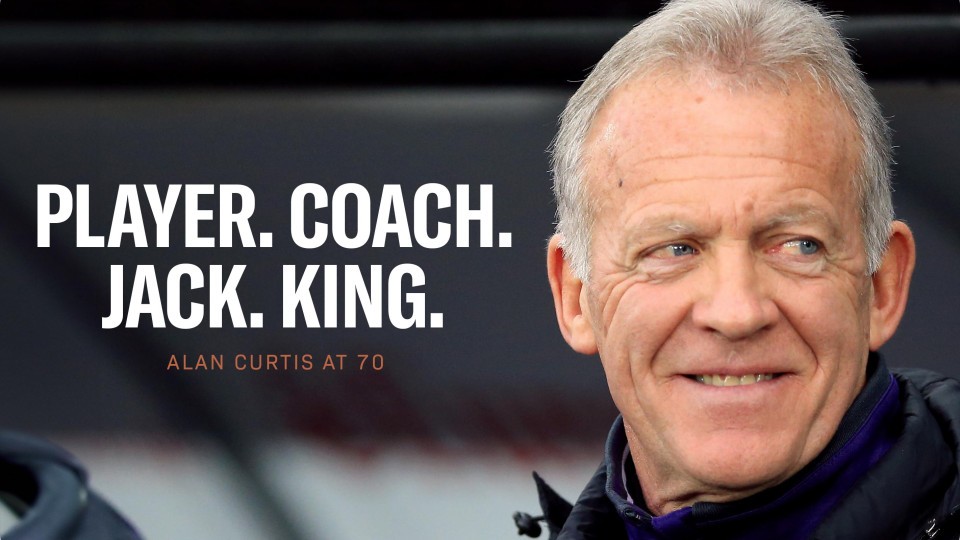
“Gratitude. Pride. Togetherness.”
Alan Curtis MBE pauses for a moment as he reflects on the three words he uses to sum up what Swansea City means to him.
The honourary club president has seen it all over more than 40 years of service to the Swans.
Player, community officer, youth-team coach, first-team coach, caretaker manager, loan manager, club president; these are just some of the roles he has held across an illustrious career in the black and white.
But he is clear on which one of that trio of words carries the greatest weight.
“Whenever we have had togetherness, I have always felt we can do something special,” says Curtis, who will turn 70 on April 16.
“I have experienced relegations and difficult times, but I feel when we have needed to do something or to achieve something, then that togetherness has underpinned everything.
“It’s a massive part of the club, when you have it, it’s incredibly powerful.”
Curtis would certainly know.
He is the connecting line between the two greatest golden eras in the 112-year history of Swansea City.
When John Toshack’s side built on the foundations laid by Harry Griffiths and went all the way from the bottom tier to the top-flight, Curtis was there for most of the rise, and part of the team that sealed promotion to the First Division on that historic afternoon at Deepdale in 1981 and that went on to top the English football pyramid at times the following season.
Fast forward 30 years, and he was there again, part of the first-team set-up as promotion to the Premier League was sealed in dramatic circumstances under the Wembley arch, before returning to the famous venue again for Capital One Cup success in 2013.
There have been innumerable special moments, but Curtis acknowledges that those from his playing days carry the most resonance.
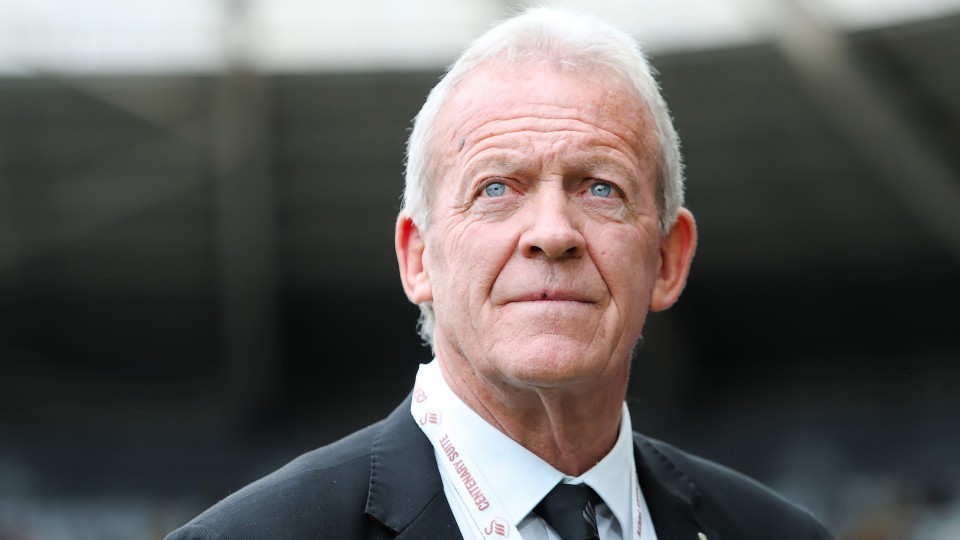
“To be part of those times was so special,” he says.
“If you were to ask me which was the better one, the first thing I would say is that there is nothing like playing.
“Being on the pitch was like freedom to me, to be out there playing. I have always said to people that you should play as long as you can because you are a long time out of that.
“When you play you are expressing yourself and, if the game is not going well, it’s within your power to change things. You can do something about it.
“Coaching is the next best thing but, really – aside from maybe substitutions – you don’t have that power and control to change a game. The players do that and that’s why playing is such a wonderful thing.
“For example, I vividly remember my final league game for the club against Bolton at The Vetch. I looked up at the big clock and the time was 20 to five, and games used to finish pretty much bang on that time and I felt like my career flashed before my eyes.
“I was lost in my own world for a minute or two with that realisation that it was over, that was it. You feel that because you know what you are losing, all those amazing experiences and feelings, that companionship with the other players.
“When I reflect on it all, one of the things that stands out to me is the players and teams the club had who never got there.
“If you stop and think of teams that had players like Ivor Allchurch, Cliff Jones, Len Allchurch, Mel Nurse, Mel Charles, Harry Griffiths. They were household names, and they got close at times, but it wasn’t until 1981 that we got there.
“So, when you put it in that context, you really realise how special it has been to experience that as a player and a coach.”
“But the playing side was the best period of my life, even if the reality of going to the Premier League and winning a major trophy maybe felt bigger because of the attention and focus there was on those games.”
Curtis will make an appearance on the Swansea.com Stadium pitch ahead of Saturday’s game against Rotherham to mark his upcoming birthday and acknowledge the years of magnificent service he has given Swansea City.
But he admits the more than half a century he has been with the club feels like it has flown by.
“I do find myself stopping and realising that when I first came down to the club I was 17 years of age, which means I have been involved with Swansea City for 53 years,” he says with a chuckle.
“That’s not been continuous but that’s how it started and I find it incredible, because it certainly doesn’t feel like it’s been 53 years and I have had some time off for good behaviour!
“I’ve had a lot of different jobs, but I could never have imagined I would still be at the club in some capacity.
“There have been some tremendous times, and the highs far outweigh the lows or any disappointments.
“The club has come so far in that time. It’s a special place and it has been the biggest thing in my life outside of my family and friends.”
To mark Alan’s 70th birthday we asked him to pick out some of his favourite Swansea City moments and people from his time at the club.
Best goal for Swansea City
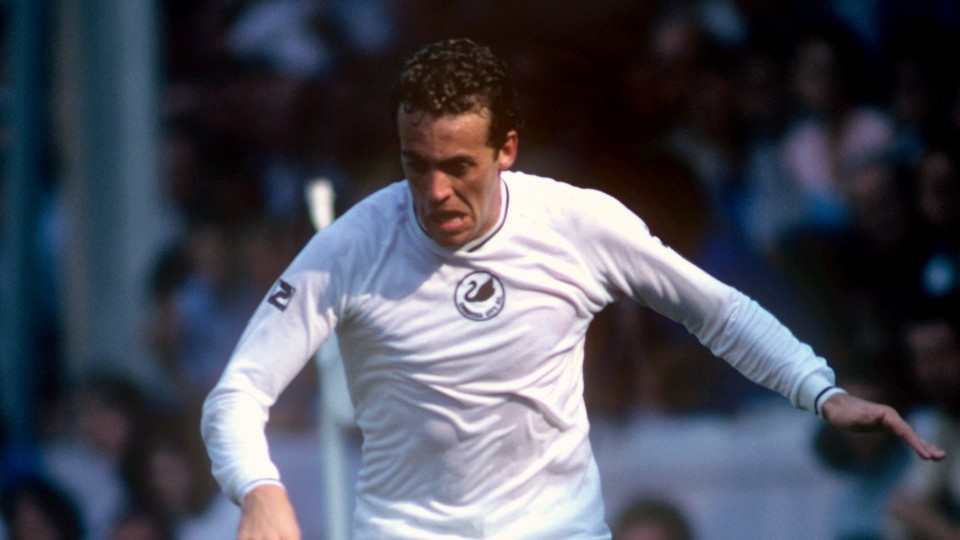
“It has to be the goal against Leeds. It is the goal most people want to talk about.
“It does make me laugh how many people come and tell me they saw my hat-trick in that game, but it was Bob Latchford who had a hat-trick, I think people confuse it because my goal gets played so much.
“I used to correct people, but I tend to let it go these days!
“I had a tough time at Leeds with a bad knee injury and being out for nine months. It had been a big decision to leave but they were a massive club, the support was incredible. It just didn’t work out.
“It was not that I had a point to prove when the fixtures came out and they were our first game as a top division club, but you always want to do well against your old club with most of the players being teammates of mine six or seven months before.
“But the whole day was fantastic. The Vetch was packed, the weather was brilliant and it seemed everything seemed to fit and click into place.
“The only thing was we all stayed in a hotel in Porthcawl on the Friday because Tosh wanted us all together, this then meant we had to travel down Fabian Way to get to the ground and, on a Saturday, it was packed, and packed with Leeds supporters.
“The plan was to get to the Vetch nice and early, but we ended up rushing and getting there around 2pm, but it actually worked out well because we got changed, had a quick warm-up and were ready to go.
“I do remember my hands were shaking with nerves until I got out there, and everyone will tell you the same thing; the period just before kick-off is a horrible time, all the self-doubts creep in, but once you get out on the pitch and you get your first touch of the ball the adrenaline kicks in and you are away.
“It was such a great day and to score just capped it off.”
Best teammate
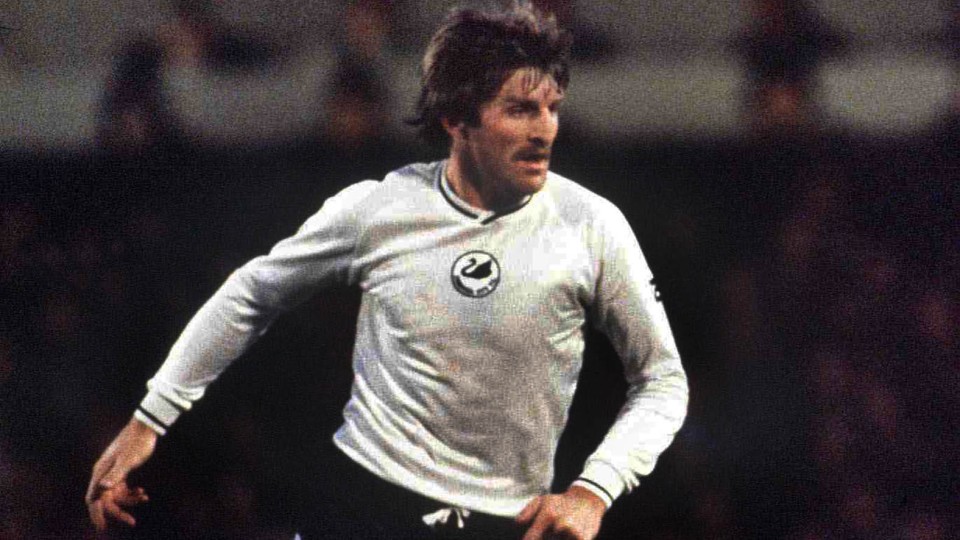
“It would have to be Robbie James. He could play anywhere. He was primarily a midfield player, but he could play out wide or up front and - in his prime - he could also play centre-half or full-back.
“His strength was his strength, if you like. He wasn’t the quickest but he used to use his body well, he had a cannonball of a right foot and he would be able to score from 25 or 30 yards.
“He was good in the air, and he could honestly do anything, he rarely got injured.
“He was not the best trainer but as soon as he got onto the pitch he was non-stop for 90 minutes. I played with a number of great players like Leighton James, Jeremy Charles, Eddie Gray at Leeds but Robbie would clearly be the number one.”
Best Swans manager during your playing career
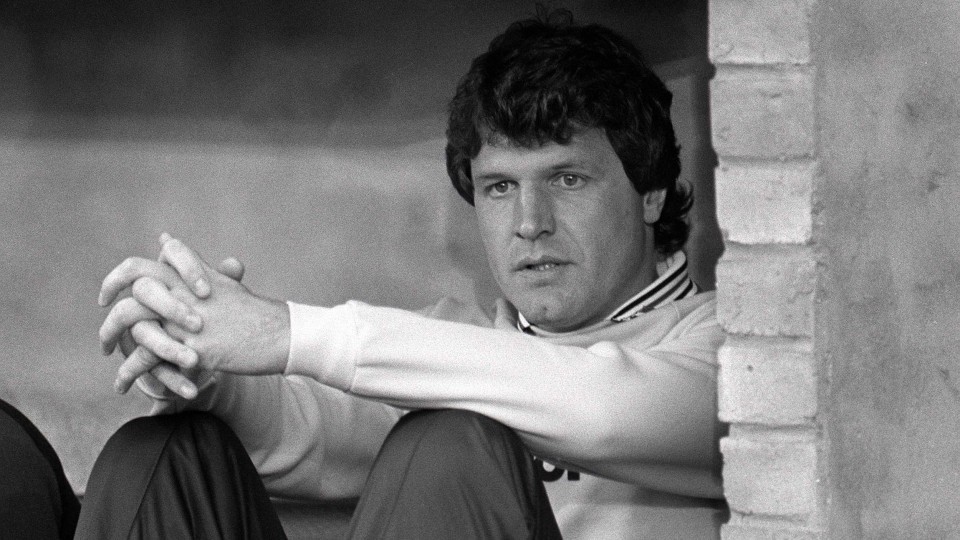
John Toshack. I don’t think he ever did a coaching badge. He said everything he learned was from Liverpool so training was always intense.
“He would change things like making sure we all had our own training kit instead of fighting over it, and he just made it more professional and would keep us together to go for food in town and things like that. He understood the importance of togetherness.
“People forget because he came in as a player-manager and for the first couple of years he still played a lot and it was like signing a First Division striker.
“The older he got he would obviously play less, but the experience he picked up meant he would change the shape of the team a lot. He was astute tactically.
“The majority of teams at that time would be 4-4-2 or 4-2-4 with two wingers, one big striker and one small striker, two midfield players. But Tosh changed it, we would play five at the back and have full-backs really push up the pitch.
“He would just chop and change and was prepared to experiment with things. Some teams didn’t know how to play against him tactically. We had good players and we knew that but he would change things in the game if we had to.
“Tosh had an aura about him, he was a big man and would walk into the changing room and we would all be talking, but as soon as he walked in we would shut up.
“He had that presence and the respect was there straight away. We didn’t always see eye to eye with him and he fell out with a lot of people because he demanded everything had to be spot on and he could be critical at times, but everything would be forgotten.
“He would criticise you and then it was all said and done. It was because he wanted you to improve and get better.
“He was head and shoulders above any other manager I worked with.”
Best Swans manager during your time as a coach
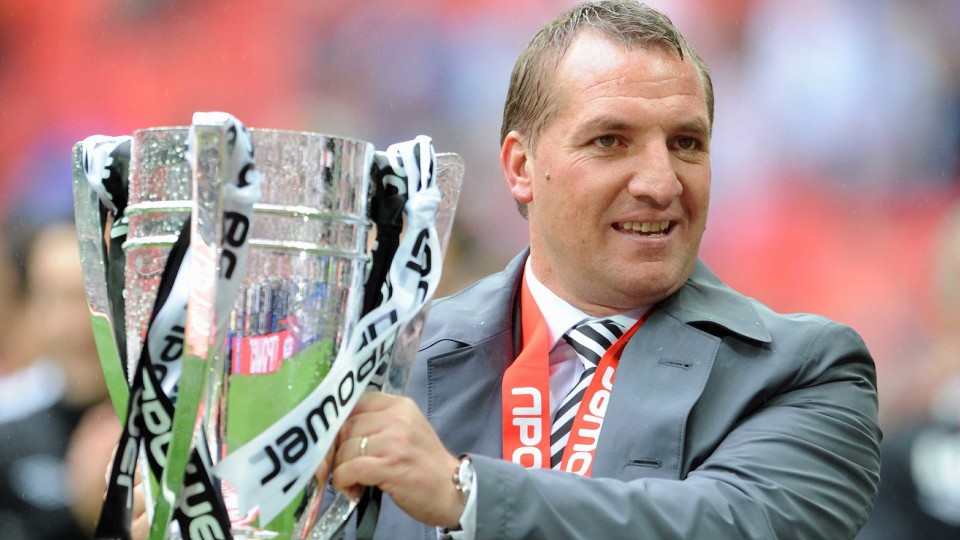
“Brendan Rodgers. He was just different class, from the day he walked in.
“He would hug everybody it wasn’t just a shake of the hands. He was a typical sort of Irishman who liked to joke and laugh, but there was a line that you would never cross, there would be times where he would explode and really dig into people. He is a lovely person, a great guy, but there is a real competitive edge to him to.
“We had a meeting every day and the training programme would be there so we knew exactly what we were doing.
“If you were laying out an exercise or a drill he would come out and check the dimensions, and if you hadn’t put it right he would make sure it was.
“He was very demanding, he wanted the highest-possible standards. For example if a player made a sloppy pass he would stop the session and make them do it again, but he had this fantastic sense of humour as well and knew everybody’s names.
“Funnily enough he was manager of Watford when we played them under Roberto Martinez, I think they beat us 2-0 and in the manager’s office afterwards he came in and said ‘I want my team to play like yours’.
“His team had beaten us, but he knew that’s the way he wanted to play.
“We were the better team that day but he was humble enough to recognise it, and he had such a clear idea of what he wanted to do. That’s always stuck with me.”
Best player you coached
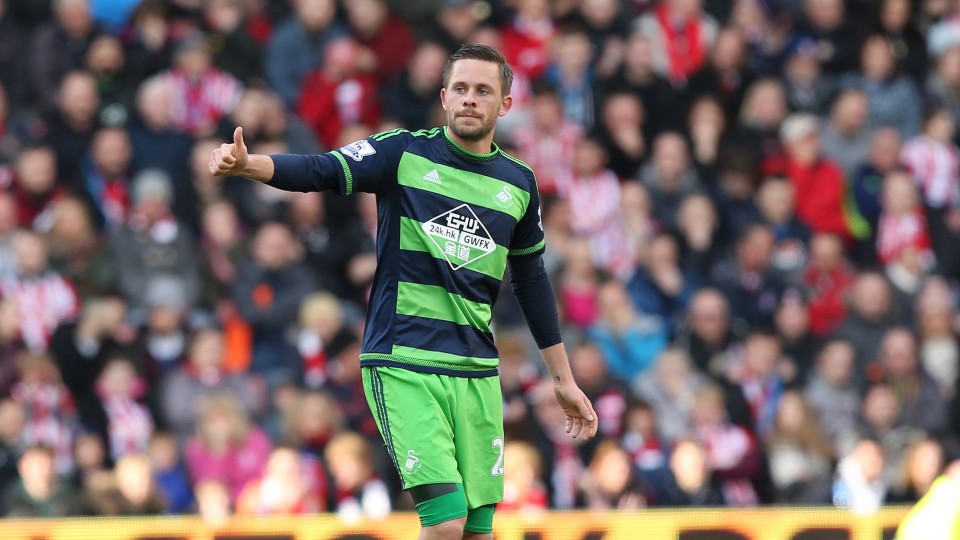
“I think it would be Gylfi Sigurdsson. Just the way he dedicated himself to the game.
“For example, he would always work after training, even on Christmas Day when most wanted to go home as quickly as possible to spend time with your family.
“But he would grab a bag of balls and stay for an hour extra, he would practice with both feet, free-kicks from both sides and centrally, and penalties.
“You would then drill balls into him where he would take a touch and finish, but you didn’t mind because he was the most likely to score in those situations in the next game because of the work he had put in.
“In terms of dedication and the way he applied himself I would say it has to be him.
“It’s such a hard question because there were so many great players, even though he would cost me a couple of hours on Christmas Day!”
Best moment with the Swans as a player or coach
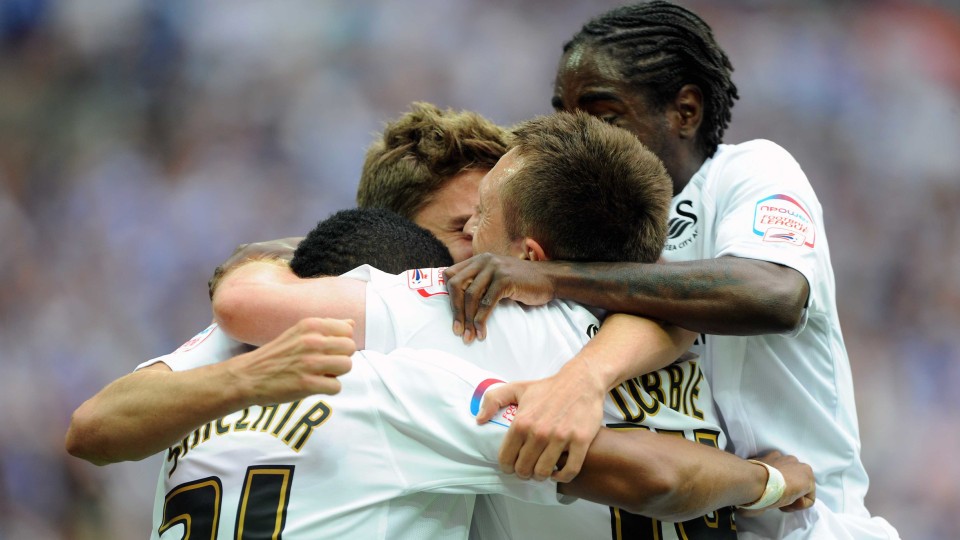
“I am going to contradict what I said earlier now because, while I loved my time as a player, I think getting promoted against Reading was the best moment.
“It meant so much to everybody and the build-up to the day, driving into Wembley and seeing the fans coming from everywhere. It was incredible.
“We just knew that we couldn’t lose when we saw that. Obviously when the final whistle went it was fantastic, but I do think that arriving to the stadium was incredible.
“We knew a lot of the people waiting there for us, as well and I think everybody was just really emotional about it. I am getting a bit emotional thinking about it, and it brings me back to the togetherness of the football club.
“Playing for the Swans was obviously the best part, but that moment was I think the best because of how much it meant to everybody that day, and for a lot of people it was life-changing and put Swansea on the map.”
Biggest disappointment
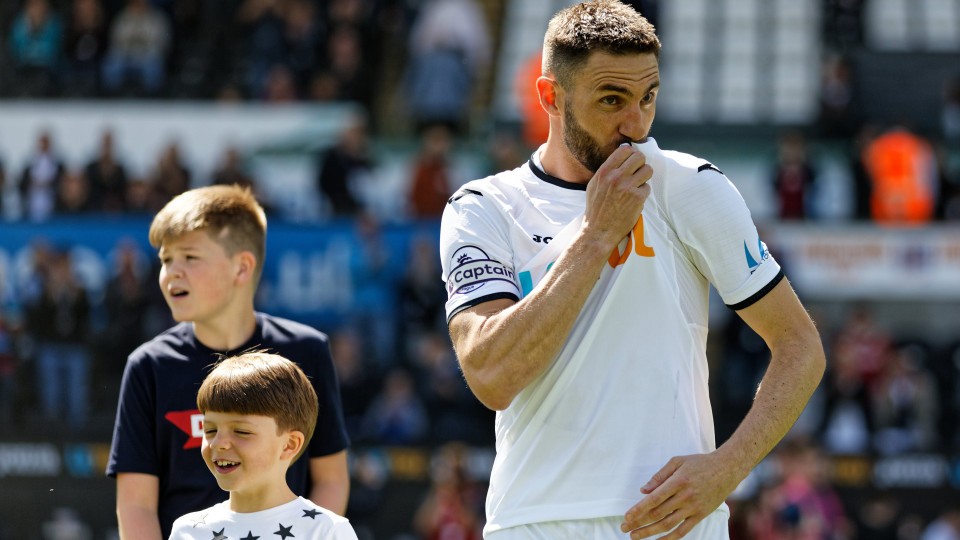
“Both relegations from the top flight were hard. I just don’t think it was our time to go down with either of them.
“I always had at the back of my mind that the Premier League was going to catch up with us eventually, but when we went down we should never have gone down, I think we still had a couple of seasons left in the Premier League.
“I would say exactly the same for the First Division days as a player. We didn’t have a big squad, and having a load of injuries we just didn’t have the squad to keep us going at the time.
“Even then we still had enough of a nucleus to stay up and regroup, but obviously there was no Sky Sports money in those days and then by the second season we were practically giving players away.
“That was difficult but those would be the two most disappointing moments at the club just because of how hard we worked to get there.
“But, as I said earlier, the highs have far outweighed any lows during my time with the club.
“I cannot believe it has been so long, but I’ve loved it, even in the tough times. There’s no denying how special the club is to me.”
The seven most important people during your time at the club.
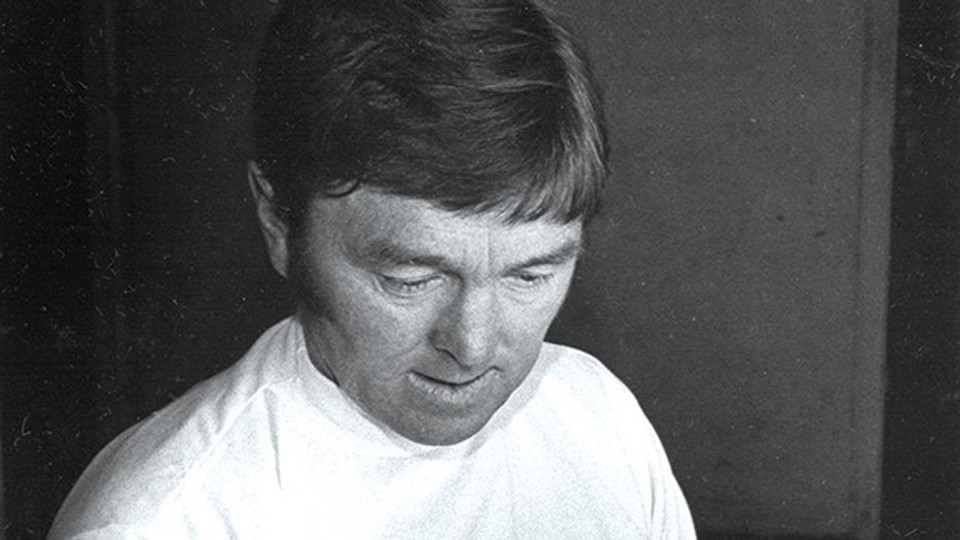
Harry Griffiths – He laid the foundations for Tosh’s team.
John Toshack - The best manager I played under.
Roberto Martinez – He really started the way of playing that took us to the Premier League.
Brendan Rodgers – A brilliant coach and a great person.
Huw Jenkins – The architect behind our rise through the divisions.
The local lads from the 1981 team – I know I’m cheating a bit here, but playing with the likes of Robbie James, Leighton James, Jeremy Charles, Wyndham Evans, Nigel Stevenson, Dudley Phillips. It was such a special part of my career.
Herbie Williams – He gave me great advice when I was coming through as a young player. He told me how to look after myself.